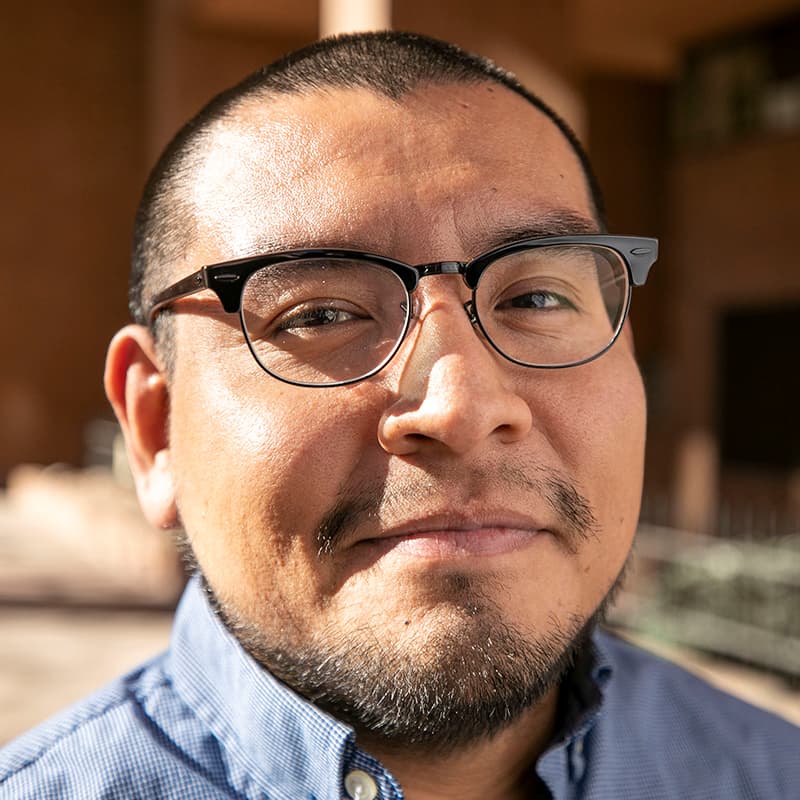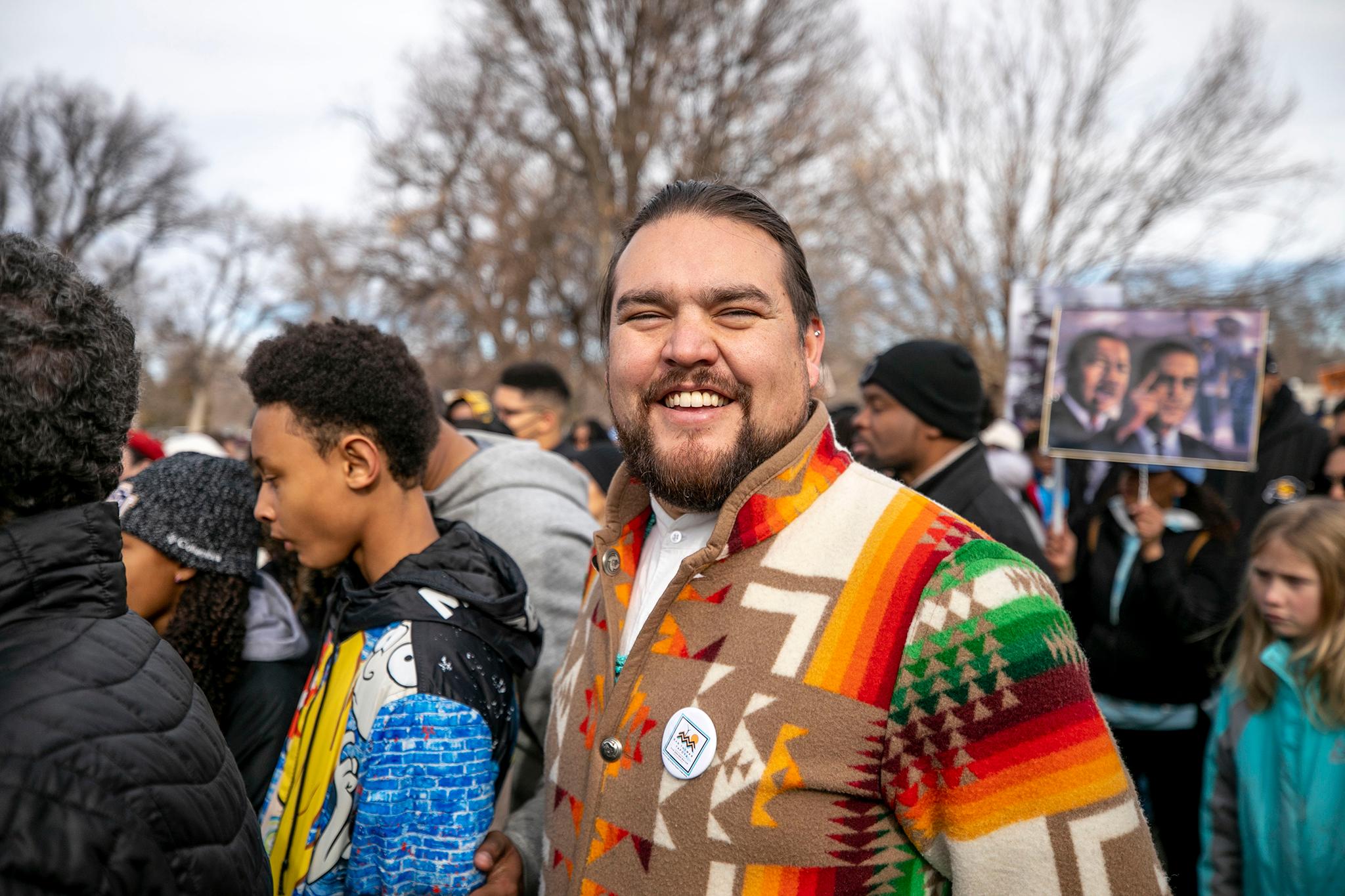As part of our 2023 voter guide, we asked each mayoral candidate on the ballot to fill out a questionnaire. You can read short biographies of each candidate and find their questionnaires here.
Please answer the following questions with a yes or no.
Should the conservation land easement on Park Hill Golf Course be lifted? No. Assume the police force is fully staffed, should Denver hire more police officers? No.
On that note, would reducing the police budget to fund diversion programs and other potentially crime reducing initiatives ever be an option for your administration? Yes.
Should Denver plow streets after snow storms more often even if it means over budgeting for it? Yes.
There's a bill at the legislature that would allow a version of local rent control. If it became law, should Denver enact rent control measures? Yes.
Should Denver institute mandatory holds on people interacting with law enforcement who are in mental health or addiction crises? No.
If state law allowed them, should Denver have supervised drug use sites? Yes.
Is the mayor's office too powerful? Yes.
Does Denver need more bike lanes? Yes.
Does Denver need more parking lots? No.
Feel free to elaborate on these questions.
What are the biggest threats Denver faces in the next 30 years, and what will you do about them given that you could be mayor for 12 years?
Climate change is both our biggest threat and our biggest opportunity. We have the chance to completely remake our economy and society, and in doing so, build a better world. It's about power to the people, literally!
This is my life's work. I would build on the work we've already done to approach this threat in a few key ways:
First, we need to prioritize the most impacted. By listening to communities struggling most with toxins and environmental racism, and uplifting indigenous knowledge, we can pursue a truly just transition. The environment isn't a "luxury" issue-it's about making sure every neighborhood has clean air and clean water, a safe job and an affordable energy bill. Our policies have to focus on the most vulnerable.
Second, we need to prevent future harm. As State Director of GreenLatinos I organized statewide to pass 9 groundbreaking climate bills including the Air Toxins Act, and wrote reports identifying 189 federal pollution violators in Denver. As Mayor I would continue to stand up to corporate polluters, ban fracking, replace our lead pipes and ensure ballot measures like Waste No More are implemented properly.
Third, we need to invest in solutions. To fund solutions we'll use public banking, state and federal funds for climate change. We'll address food insecurity by expanding mobile markets and urban gardens, among other plans. We'll upgrade old buildings to be more efficient and save on utility bills, and set standards for the construction of new buildings to reduce emissions. We need to support schools and communities in accessing community solar gardens to power their own neighborhoods, and create infrastructure to support walkable and bikeable neighborhoods. I have a plan to electrify, expand and increase RTD to be a truly viable alternative to personal cars, and increase accessibility for riders and bus stops.
All these changes are a massive opportunity to support workers, creating local union jobs with the highest labor standards. We need to take care of workers in transitioning industries and expand local workforce development.
All of this is an enormous task, but when we come together, we can bring Denver into a new age. Together, we rise!
What do you admire about Mayor Michael Hancock's administration? What would you improve on?
I sat on the committee organizing Denver Days on behalf of the City Council. This work to bring people together for service and celebration must continue. I believe that the My Denver Card gives great opportunities to our youth. I love the Cabinet in Community events, the Mayor's Office of Children's Affairs and the Social Equity and Innovation Office.
To improve our administration needs to fundamentally serve Denver's working families and most vulnerable communities, not corporations and developers. We need to invest in data-driven solutions that have actually been proven to work, not policies that give the illusion of action or act as a band-aid. The need for improvement in these areas permeates many aspects of policy. This starts with even the basic accessibility of government, from ADA accessibility, to language
access to literal opportunities for public engagement. The Colorado Environmental Justice Action Task Force, which I Co-Chaired, has a road map for improvements on community engagement. I could go on with how Hancock's administration needs to improve by serving the people in every aspect of policy.
What steps would your administration take to make Denver more affordable?
I would make sure people can stay in their homes by passing rent control, a vacancy tax, enforce tenant protections and support community land trusts and development corporations. Then we need incentives and requirements for housing that working families, the elderly and the disabled can actually afford. We can make this easier by converting commercial zoning and parking lots to residential plots, easing permitting and considering creative housing solutions like public-private or public-NGO partnerships.
Sweeps or no sweeps? You can add some nuance here, but you must answer "I would continue the sweeps" or "I would end the sweeps."
I would end the sweeps, or as I call them, the traumatic displacements. It's a cruel and ineffective policy. As the government has swept people even in the dead of winter, the unhoused population has tripled since 2019. Continuity of care is interrupted. It wastes money pushing people block to block instead of actually getting people into housing. We need to invest in data-driven solutions that actually get people permanently off the streets. Globally and in Denver, housing first programs like the Denver Supportive Housing Social Impact Bond Initiative with wraparound services have worked to get people housed and keep them housed. As we build out those programs we can rapidly deploy plans like the one I presented at the start of the pandemic, to deploy safe outdoor sites, hotels and public health services to support people in the meantime.
Permitting wait times in Denver have increased significantly, sometimes slowing down how fast housing can be built. What do you think is the problem and how would you fix that?
Absolutely this is a problem. As Mayor I would increase staff to address the backlog and expedite permitting for low-cost housing and home additions. We should also listen to builders, non-profit developers, and community developers, and homeowners that are impacted by this backlog of approvals. I have heard many solutions through this campaign and I intend to work through these issues immediately. We must prioritize systemic solutions for the affordable housing projects so that we can meet the obligation to receive funds from Proposition 123. Additionally, we should prioritize process improvements for homeowners projects, which are essential for people holding on as our city gentrifies.
What are your thoughts on converting downtown empty office spaces into residences? I support this! Specifically they should be converted into residences that are affordable for
working families, seniors and the disabled. We really need to increase housing stock for our lowest income brackets.
Black-owned businesses like Coffee at the Point and Wah Gwaan Brewing Company have been shutting down. Should the city intervene to preserve Black entrepreneurship, and if so, how?
Yes, the city absolutely has to intervene. We have an obligation to support small businesses that exist now as well as foster entrepreneurship. First, we need to pass rent control so Black owned businesses aren't quite literally driven out of the city by unexpected and ridiculous rent increases. We also need to help them become certified green businesses with lower energy costs among other social benefits. I also want to build on grants, subsidies and business management support for Black-owned businesses and businesses owned by other marginalized communities, including the formerly incarcerated.
How do you feel about land acknowledgements? They're an important start, but any institutions doing land acknowledgements should be following that up with concrete action to materially support indigenous communities.
What are your thoughts on a flavored tobacco ban? I support it.
Describe specifically how your office will demonstrate transparency? My philosophy is that together we rise. Communities know their problems best, and very often the solutions. My door will be open to exchange ideas and share those solutions. Concretely, I think the city can do a lot to increase the accessibility of its resources and opportunities for engagement. We need to have all materials and meetings with translation available in Spanish, Vietnamese, Arabic, Somali and Amharic at a minimum for communities that people reside in. We need to comply with ADA and go beyond the bare minimum for accessibility. We must be in the community and always answer the phone.
When's the last time you rode RTD? I ride RTD all the time. A good question would also be when was the last time you used Bustang to travel regionally across the state!
Vision Zero, Denver's initiative to eliminate traffic deaths, could be going better. What would you do to improve that?
We haven't met Vision Zero because our city government continues to develop for cars, not for people. When we expand and electrify public transit so that it's a viable alternative to cars, there will be less cars on the road and less accidents. When we develop communities so it's safe to walk, bike and roll then we have less accidents. When we ensure our intersections are safe for multimodal transportation, instead of demolishing homes to expand highways, then we will have less accidents. Moreover, we have the plans and we have lacked the leadership to implement it at the scale this public health crisis calls for. We must start with the high injury network, places we know are the most dangerous that we need to act on long ago. I also believe that Air Quality
should be considered in the conversation of Vision Zero. We have designed communities in a way that sacrifices the health of those most adjacent to the volumes of people.
The EPA has declared Denver a "severe" violator of federal ozone standards. What actions would you take to reduce ozone precursor emissions within the city?
As Mayor, I would bring in public banking, state and federal funding to retrofit existing buildings to be more efficient, saving people money on their electric bills and reducing emissions. We'll ensure new construction is sustainable, develop walkable/bikeable neighborhoods, expand and electrify public transit and invest in community owned renewable energy programs. This process will be a huge opportunity to invest in local workforce development, unions and companies with the highest labor standards. I also intend to support workers in transitioning industries, ensuring they aren't left behind as we hold polluters accountable, ban fracking in Denver and transition away from fossil fuels. I have been at the table pushing for cleaner air and I want you to imagine what it would be like if regionally Denver led the way to clear blue skies.
Fighting for environmental justice is my life's work. As the state director of GreenLatinos I've organized to pass a dozen groundbreaking environmental bills including the Air Toxins Act and the Environmental Justice & Outdoor Equity Act. I served as Co-Chair of the Colorado Environmental Justice Task Force, successfully passed ballot measures like Waste No More and fought the I-70 expansion. As Mayor, I'd continue to stand up to polluters and protect workers as we transition away from exploitative policies.
What's the worst intersection in Denver?
For walkers, Federal and Decauter. For bikers, Iowa and Santa Fe. For drivers, 38th underpass between Walnut and Brighton.
Need more help voting? Check out the rest of our voter guide here.











